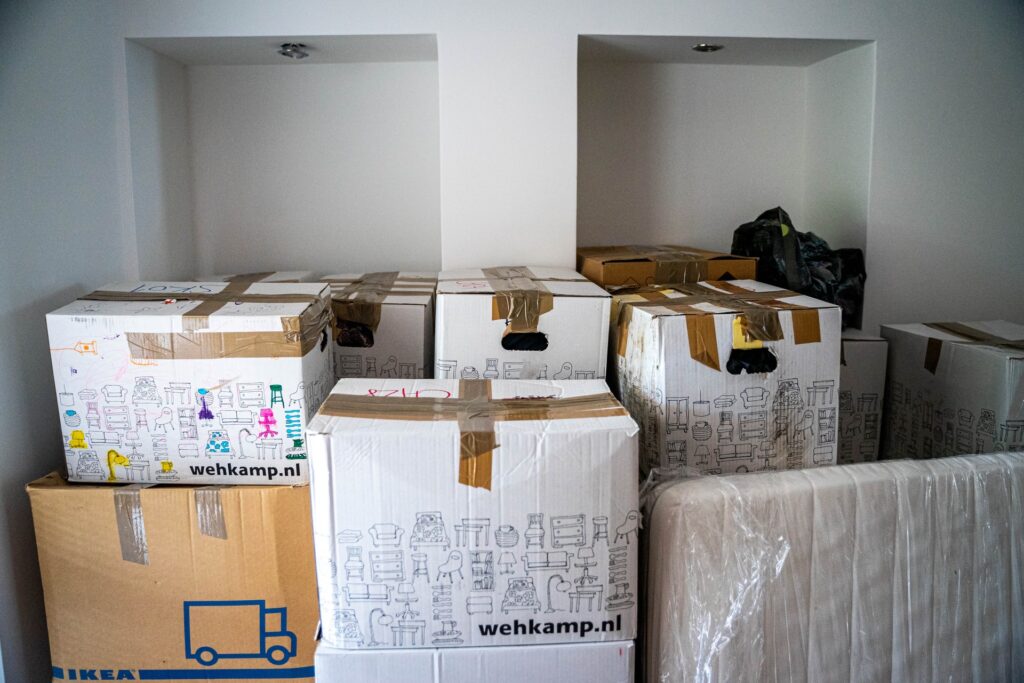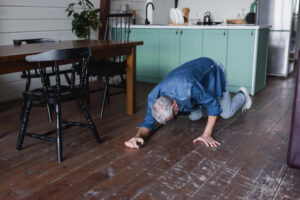Getting older involves a lot of transitioning from what you used to know as “normal” to an entirely new normal in a lot of different situations. One of these situations is when you find yourself having to downsize to a smaller home.
Perhaps your home is just too big with your kids grown and moved out or perhaps the physical and economic toll that maintaining a home takes is just no longer feasible. Whatever the reason, the act and even the very thought of downsizing can evoke a lot of emotions in an aging adult.
You wouldn’t be alone with those feelings, either. According to a report by Transamerica Center for Retirement Research, almost 4 in 10 retirees (38%) have moved to a new home. Among these, 33% moved to downsize.

Grief or Sadness
Feeling sad or feeling a sense of grief during downsizing is absolutely normal no matter how much you believe you’re making the right decision. You may be saying goodbye to a familiar community or having to discard possessions because you will have less space in your new home.
Leaving the home you’ve built for yourself is difficult. It can be especially difficult if one of the reasons you are downsizing is because you’ve recently lost a spouse or partner. Dr. Mischoulon at Harvard’s Massachusetts General Hospital recommends waiting a year if possible to move if this is the case. You may be emotionally too fragile to go through another loss so soon.
To cope with these feelings, attitude is important. Telling yourself that it’s okay to feel grief over the loss of a home and inanimate objects helps. It’s normal in this kind of life situation to feel grief. It’s actually healthy to go through the grieving process instead of rushing it.
To help get through this process, Harvard Health recommends becoming engaged in your new community as quickly and as actively as possible. Staying connected and building meaningful relationships make everyone happier, but for seniors, it’s particularly important to their emotional well-being. Becoming an active part of a new community can help get over the sadness attached to losing your old one.
Need assistance now? Click here to contact us for help or schedule a visit.
Anxiety
Downsizing and moving is often accompanied by the anxiety of the unknown. Anxiety when downsizing often comes from the prospect of discarding possessions and deciding which possessions to take with you. When you’ve spent a great deal of time in one home, a lot of stuff accumulates.
When it comes to your belongings, it’s best to stay focused and have a process. We recommend taking the following steps when it comes to tackling your belongings:
- Start early and work with your support system. You can ask for help from friends, family members, and professionals.
- Don’t try to do it all at once, work on one area of your home each month until you’re done. Begin by organizing closets, attics, basements, and filing cabinets.
- Make a list of the items you use regularly or love enough to keep, and box up everything not on the list. Check in a year later, and if your items are still untouched in the box, discard or donate them.
- Try to use up the food you have, or donate it to a food pantry.
- Map your new space to see if your furniture will fit and how much room you have for your belongings.
Stress
Moving at any age is stressful, which is probably why people prefer not to do it any more often than they have to. Moving involves deadlines, things to pack, papers to sign, rooms to clean, and a million other loose ends to tie together.
According to Harvard Health, moving when you’re 70 or older is even more stressful because for many seniors, coping or organizing is harder than when you were younger. It is also vital at this age to safeguard your health as much as possible, and stress can worsen existing health conditions.
To handle the stress, one important thing to do is to just get started. Looking at a to-do list can be overwhelming and stressful, but taking that list one item at a time can help you manage the stress better.
Also, you should enlist as much help as you possibly can from family, friends, and if you can afford it, professionals. Moving can be even more stressful without the help and support of your loved ones. Downsizing is the perfect time to use them to lighten the load.
Through the entire process of downsizing, you may feel a lot of different emotions, some even at the same time. When you’re feeling overwhelmed or sad by the prospect of downsizing, just try to keep in mind the benefits downsizing will give you and the reason you decided to do it in the first place.
These downsizing tips for seniors can help one deal with the stress of downsizing and bring joy into the process. Another way to bring joy into the downsizing process is finding a place your loved one is excited to live. For more, read our blog on senior housing options.




















